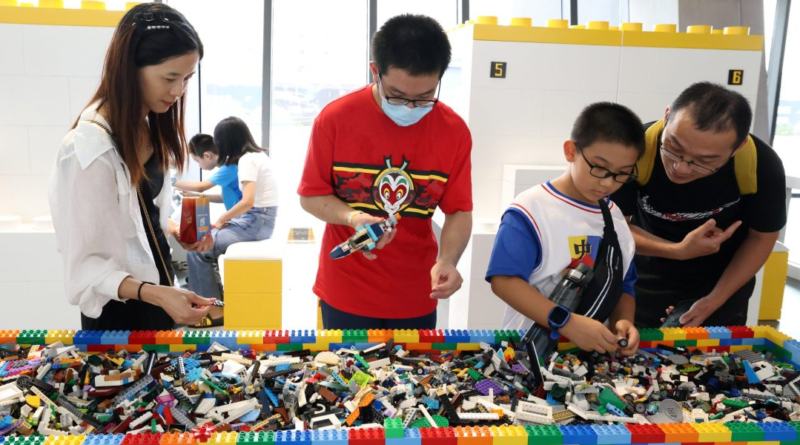Lego’s big plan to make bricks out of recycled plastic bottles would have actually made emissions worse
Lego is scrapping its ambitious plans to make its famous bricks from recycled plastic bottles after its CEO revealed the alternative would eventually cause more carbon emissions than its current oil-intensive bricks.
Lego unveiled a prototype for a brick made from recycled plastic in 2021 in its first pivot to using sustainable materials to build its products.
The Bottles to Brick initiative involved the use of recycled polyethylene terephthalate (RPET) and was set to drive Lego’s production by 2030.
The move was meant to replace the construction of Lego bricks using oil-based acrylonitrile butadiene styrene (ABS). It currently requires 2 kg of petroleum to make 1 kg of ABS, the material currently used in about 80% of Lego materials, the BBC reported.
However, Lego’s CEO Niels Christiansen has told the Financial Times the group was scrapping this plan, as the new equipment needed to switch to RPET would have led to higher carbon emissions over the product’s lifetime.
“In the early days, the belief was that it was easier to find this magic material or this new material, that doesn’t seem to be there,” Christiansen told the FT.
“We tested hundreds and hundreds of materials. It’s just not been possible to find a material like that.”
The company’s sustainability chief, Tim Brooks, elaborated to the Guardian that the new RPET material was softer than ABS and needed more inputs to improve its durability. Alongside a more arduous drying process, this further increased energy requirements above its traditional oil-based approach.
“It’s like trying to make a bike out of wood rather than steel,” Brooks told the paper, adding that this realization was “disappointing.”
Other materials being tested
A spokesperson for Lego told Fortune the RPET method was just one of many options the company was exploring to create its bricks from sustainable materials, and it still plans to have a solution in place by 2032.
“We have decided not to progress making bricks from recycled PET after more than two years of testing as we found the material didn’t reduce carbon emissions,” the spokesperson said.
“Recycled PET is one of hundreds of different sustainable materials we’ve tested.” The group is currently trialing plastics made from e-methanol.
In the meantime, Lego’s plan is to reduce the carbon emissions from each constituent part of ABS by incorporating more climate-friendly materials as they emerge, the company told the FT and the Guardian.
It comes alongside wider drives to improve the group’s carbon footprint, which also include the removal of plastic packaging. Lego last month committed to tripling its investment in environmental sustainability by 2025, spending $1.4 billion with an aim of reducing its carbon footprint by 37% by 2032.
The company plans to open two new factories in the U.S. and Vietnam next year, creating thousands of jobs at sites the company says will be carbon-neutral.
As for making its oil-heavy bricks more sustainable, the group has launched a REPLAY program in the U.S. and Canada, which allows households to send in their old bricks to be recycled. As of the latest count, more than 140,000 bricks had been donated through the program.
Sustainability and profit
The company’s sustainability targets may need to be balanced against its financial goals, after Lego announced its worst profit results for nearly 20 years.
The company’s profits fell 19% to DKK 6.4 billion (about $917 million), its worst figure since 2004. In a separate interview with the FT, Christiansen blamed the profit dip on high-cost inflation for input materials in what he described as an “extraordinary tail” to the supply-chain crisis that followed COVID-19.
However, the CEO told the FT that it wouldn’t compromise its sustainability targets in search of profit, nor would it pass on associated costs to its customers.
Lego’s struggle to find a straightforward fix for its carbon emissions is an increasingly common one among retailers.
In June, Nestle said it was moving away from “carbon offsetting” initiatives for brands including KitKat and Perrier. The practice has drawn criticism from environmental activists who argue it lets polluters cover up their emissions, and doesn’t always actually offset their activities.
Earlier this year, Gucci owner Kering deleted a 2019 announcement on its website that it had become completely carbon-neutral, the Guardian first reported. The company stopped working with consultancy South Pole to offset its carbon emissions in a similar move to Nestle’s.


